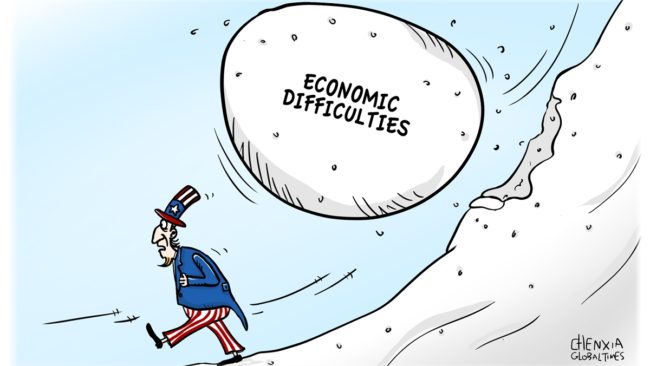Last week I published an email to clients which made the central point that inflation has a reflexive political component to it which creates incentives for politicians push back against fiscal expansions. I added that we were likely to see an increase in ‘deficit hawk politics’ in the US following the midterm elections. This morning I want to expand a little on what that means as we head into a new election cycle.
As we enter the Republican primaries this month its looking increasingly likely that a number of populist GOP candidates from the Trump cadre of the party will win seats in November. Many of these candidates appear to share the same economic views as their Tea Party predecessors of the mid-2000’s or at least see an opportunity to run the same playbook. Ad campaigns so far have focused on two points: 1. the election was stolen and 2. Inflation is the fault of the Democrats. For party operatives within the RNC apparatus, especially those chasing donors, the recent bout of inflation has been an excellent opportunity to apportion blame to Joe Biden and his Build Back Better platform, to rehash old cliches about ‘tightening ones belt’ and importantly, to raise a lot of campaign money.
As I pointed out last week: “politics is as reflexive as financial markets. Covid forced an unprecedented amount of stimulus to be unleased and that is now being seen to have created inflation which, in turn, opens up an opportunity for political point-scoring for Republicans….as Churchill noted, “never let a good crisis go to waste”.”
The ineptitude of the response to inflation by the Biden administration has created yet another political leadership deficit in D.C. which must, once again, be taken up by the Federal Reserve. It’s now pretty clear that the policy response from Jay Powell and Co. will be less data dependent and more DNC dependent.
The message I wanted to convey last week was that the “shift to fiscal” is by no means guaranteed, that actually, we find it more likely that the political dysfunction that has gridlocked D.C. for the best part of a decade actually continues to trend. There is a quiet civil war raging internally within the GOP – one which has been easier to keep under wraps while in opposition but one that will become increasingly more dysfunctional when the GOP regains power. This has massive implications for any future crises’ that require the sorts of fiscal responses we saw during Covid. Unfortunately, we see a recalcitrant cadre of Trump allied freshman Representatives who will be uninterested in actual governance, in compromise or in problem solving. As the fiscal impulse from last years stimulus turns negative, we foresee up to forty new ‘Joe Manchin’s’ joining his fiscal roadblock next year.
This is just another extension of the politic malaise that has hamstrung economic progress since 2008. The failure of technocracy and the partisan destruction of political consensus building means we have spent more than a decade relying on apolitical institutions like the Fed to replace the governance deficit created by these failures, and I see more of this in the future.
We’ve all had to learn the names of far too many Central Bankers over the last decade and unfortunately I think it’s only going to get worse – soon we may even be learning the name of the Vice Chair for Supervision as we pour over the details of the ‘Federal Reserve Supervision and Regulation Report’ or worse still, learning the names of long past Fed officials who oversaw YCC in bygone eras.
Most of us would agree that the Fed does not have the capacity or the tools to adequately address some of the coming crises’ that we’re likely to face in the coming years but what the last few years have taught us is that in the absence of competent political responses, the Fed will be looked upon to act. We’re seeing it today with inflation.
In short, we are sellers on the popular belief that politicians have suddenly ‘discovered’ pork barreling, and that all future crises’ will be met with MMT-style fiscal waves. Instead, we see further dysfunction, and more reliance on Fed interventions despite their ineffectiveness. This may force the Fed into a terrible situation where financial repression becomes inevitable.
